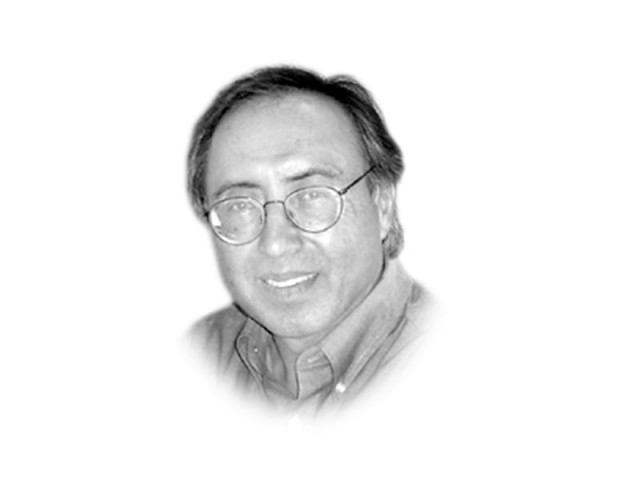A sinking ship
Real reason for such defections is power politics, turncoats change tracks when fortunes of their party dwindle

The writer is a professor of political science at LUMS

The switching from one party to another has never been shaped by serious ideological arguments, disagreements or differences over vital policy issues. The driving force has always been personal ambition, staying politically relevant in district and provincial politics by getting elected, and the lure of the perks of power. The reasons given in public, often in press conferences held when departing from one party to another, are always a bitter pack of grievances that one often finds between divorcing spouses. Three words are common in the language of political divorce — corruption, ineffective leadership and loss of contact with the people. Those leaving any party in Pakistan have all been guilty of making the same charges.
Some of the ministers of the PPP who left it recently didn’t sound convincing when saying what they said about the party. No one who has ever left a leaking political boat that is feared to go down has ever demonstrated any depth, wisdom and sound logic. The list of grievances, no matter who leaves which party at what particular point in time, is all too familiar. The real reason behind such defections is our culture of power politics that forces, or maybe incentivises, the turncoats to change political tracks as soon as they see the fortunes of their party dwindling.
Therefore, one has to look at how, generally, the PPP is being assessed in terms of its potential to regain power in Punjab or at the federal level by its electable rank and file. To be candid, they have a very pessimistic view of the party’s future. They feel that the party has lost popularity in Punjab both among its traditional constituencies as well as among the powerful landed elite. They may not be wrong in their assessment, but they are wrong in leaving the party simply on those grounds.
Political parties in democracies have risen and fallen, and have won and lost elections, but they remain together waiting for another day, time and opportunity. Political setbacks are always points of deep reflection for leaders, and never a major cause for leaving parties. Pakistan, however, is a different country, a different society, and those in electoral politics form a very different breed of the political class. They are mostly driven by the impulse of power politics, not by any programme or ideology.
Today, the PPP is neither the party that was formed by Z A Bhutto, nor is it truly a party of the people anymore. It actually began to change its character while Bhutto was still in power, around the time of the 1977 elections. Its drift towards the turncoat electable landowning class removed the ideologically-committed urban middle class cadre and intellectuals from it. It has depended, and continues to do so, on those who can likely pull off a victory in their constituencies. This compulsion of the number game in the parliamentary form of government has always been there and will be there in the future too.
One cannot be sanguine about the PPP regaining its glory days. Those are perhaps over. But what does the fall of the PPP hold for the rising PTI? The turncoats will simply enjoy the ride and quickly disembark when the going gets rough. Beware.
Published in The Express Tribune, July 8th, 2015.
Like Opinion & Editorial on Facebook, follow @ETOpEd on Twitter to receive all updates on all our daily pieces.














COMMENTS
Comments are moderated and generally will be posted if they are on-topic and not abusive.
For more information, please see our Comments FAQ